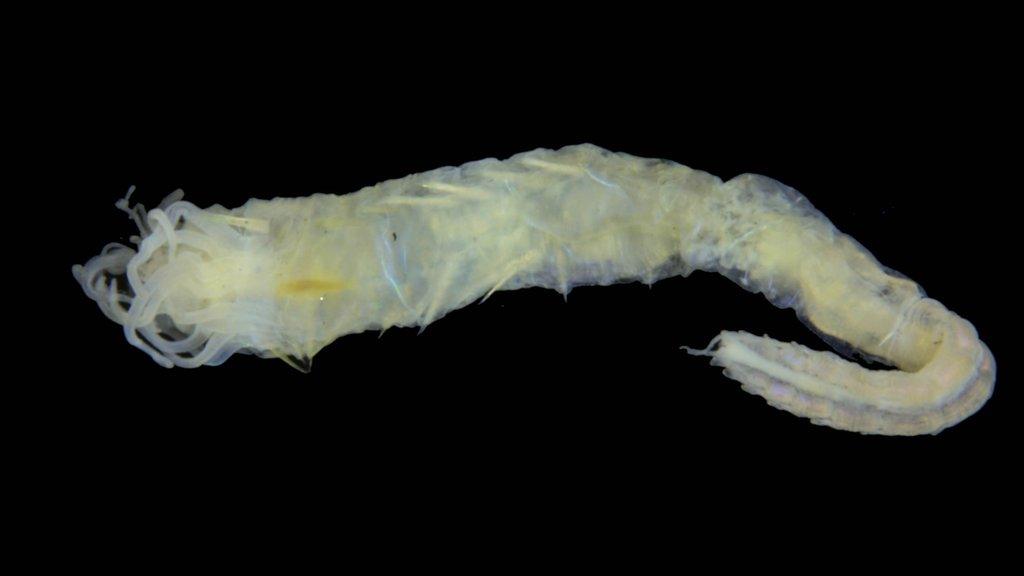Europe's largest marine protected area proposed
- Published
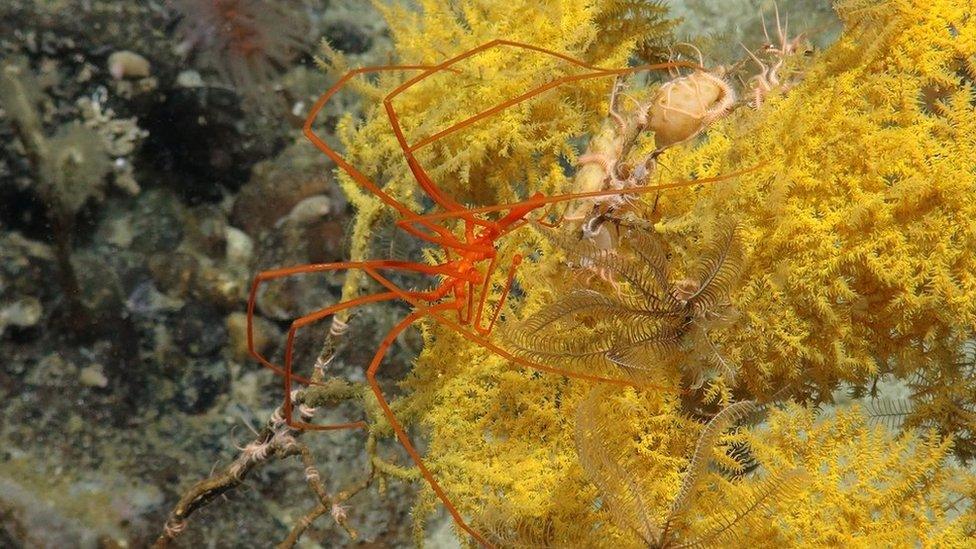
The designation aims protect rare deep sea habitats. Image copyright of the NERC funded Deep Links Project: Plymouth University, Oxford University, JNCC, BGS
Europe's largest marine protected area (MPA) has been proposed for an area of deep sea off the Western Isles.
The Scottish government has started a public consultation on the plan, external, which involves an area of 41,611 sq miles (107,773 sq km).
Coral reefs are among the wildlife found at depths of 2,400m (7,874ft).
The proposed West of Scotland Deep Sea Marine Reserve would also offer protection to habitats on seamounts, which are extinct volcanoes.
The Joint Nature Conservation Committee (JNCC), whose scientists have been among those to survey the habitats, said it would be Europe's largest MPA.
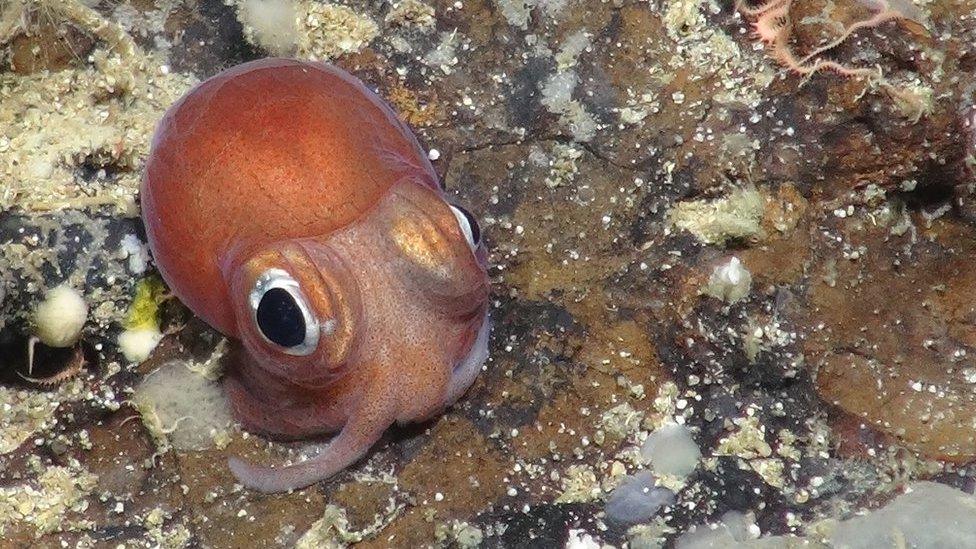
The marine life can be found a depths of more than 2,400m. Image copyright of NERC funded Deep Links Project: Plymouth University, Oxford University, JNCC, BGS
The designation would aim to protect the habitats involved from marine industry projects and some types of fishing.
Three telecommunications cables cross the site and under MPA rules, the operators would be asked to take measures to minimise potential harm caused by maintenance work on the cables.
Oil and gas exploration has taken place in the area west of the Western Isles, and further activity may require "additional mitigation measures on a case-by-case basis to achieve conservation objectives".
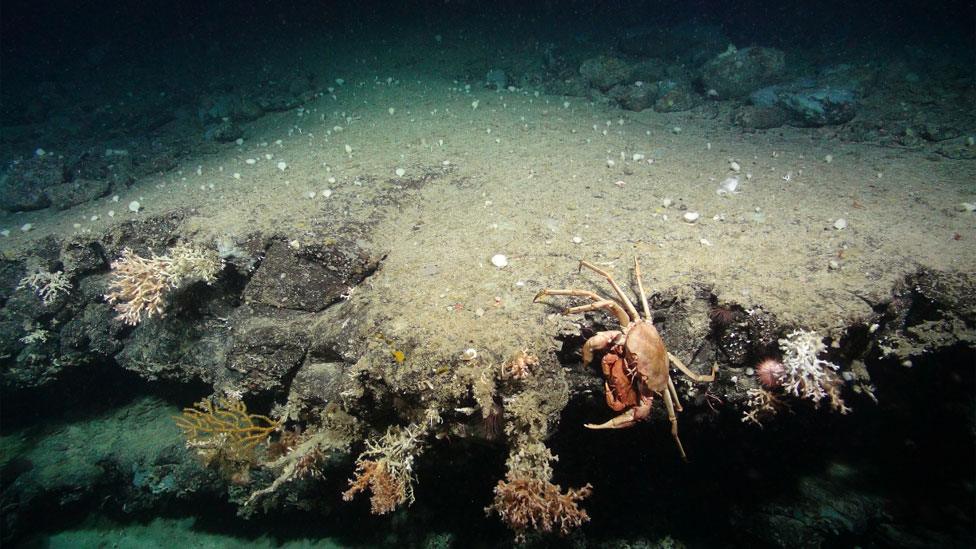
The public have been asked for views on the proposed reserve. Image copyright of NERC funded Deep Links Project: Plymouth University, Oxford University, JNCC, BGS
Fishing activity already has a range of measures in place, according to the public consultation document.
But the JNCC has advised extending restrictions across the whole site on deep sea trawling.
The proposed reserve would cover areas of deep sea mud, cold water coral reefs and habitat inhabited by fish such as blue ling, gulper sharks and Portuguese dogfish.
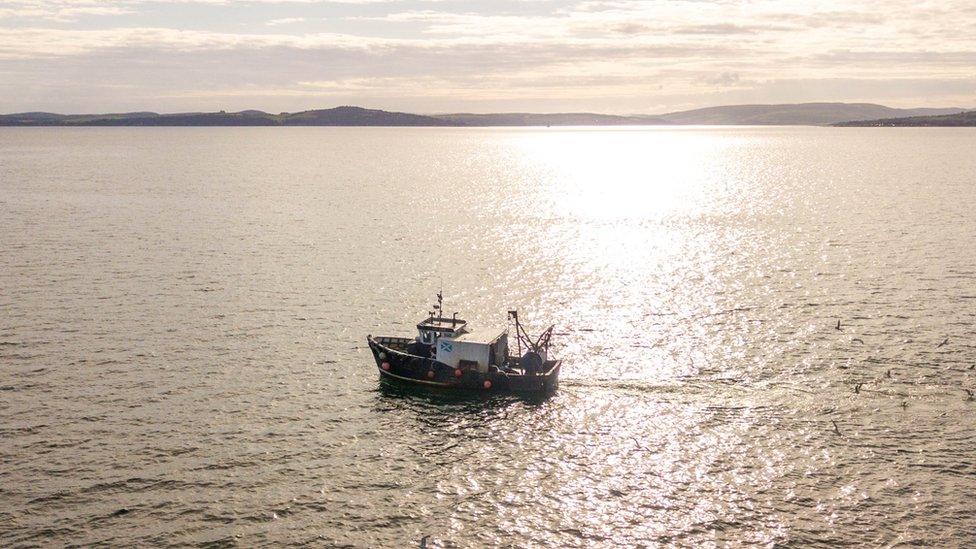
Deep sea trawling could see further restrictions under the plan
- Published19 September 2019
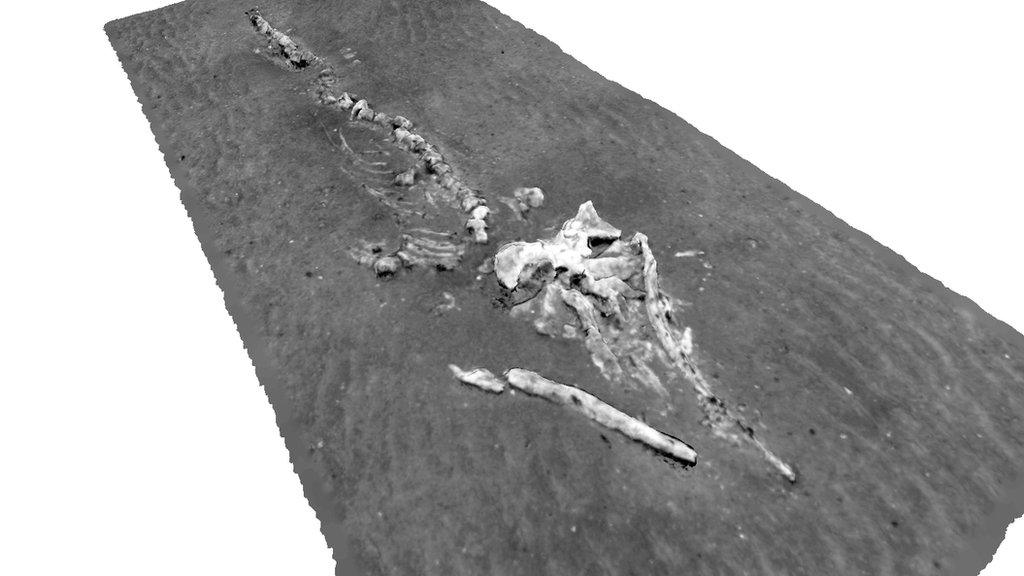
- Published12 September 2019

- Published6 September 2019
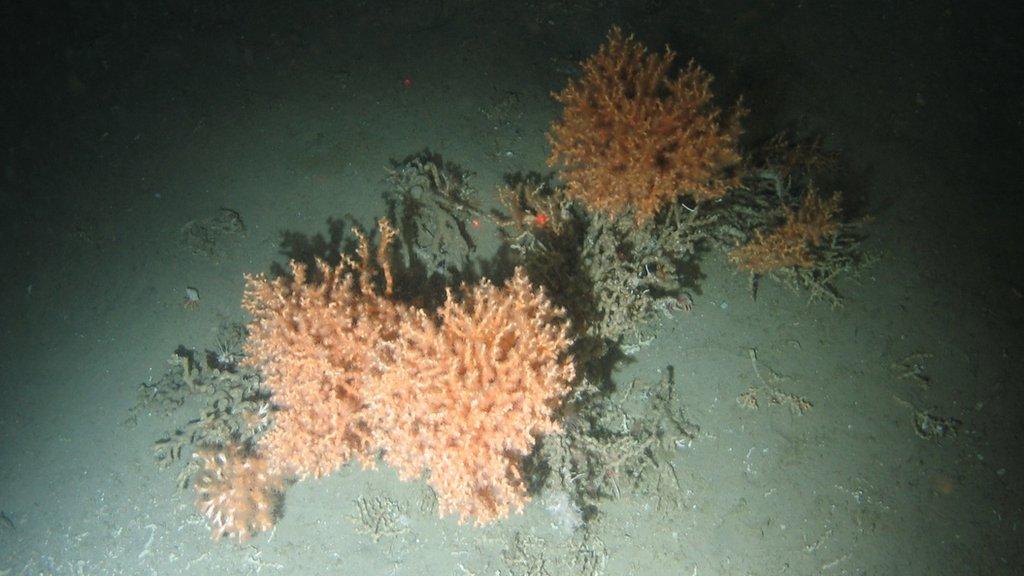
- Published18 June 2019
